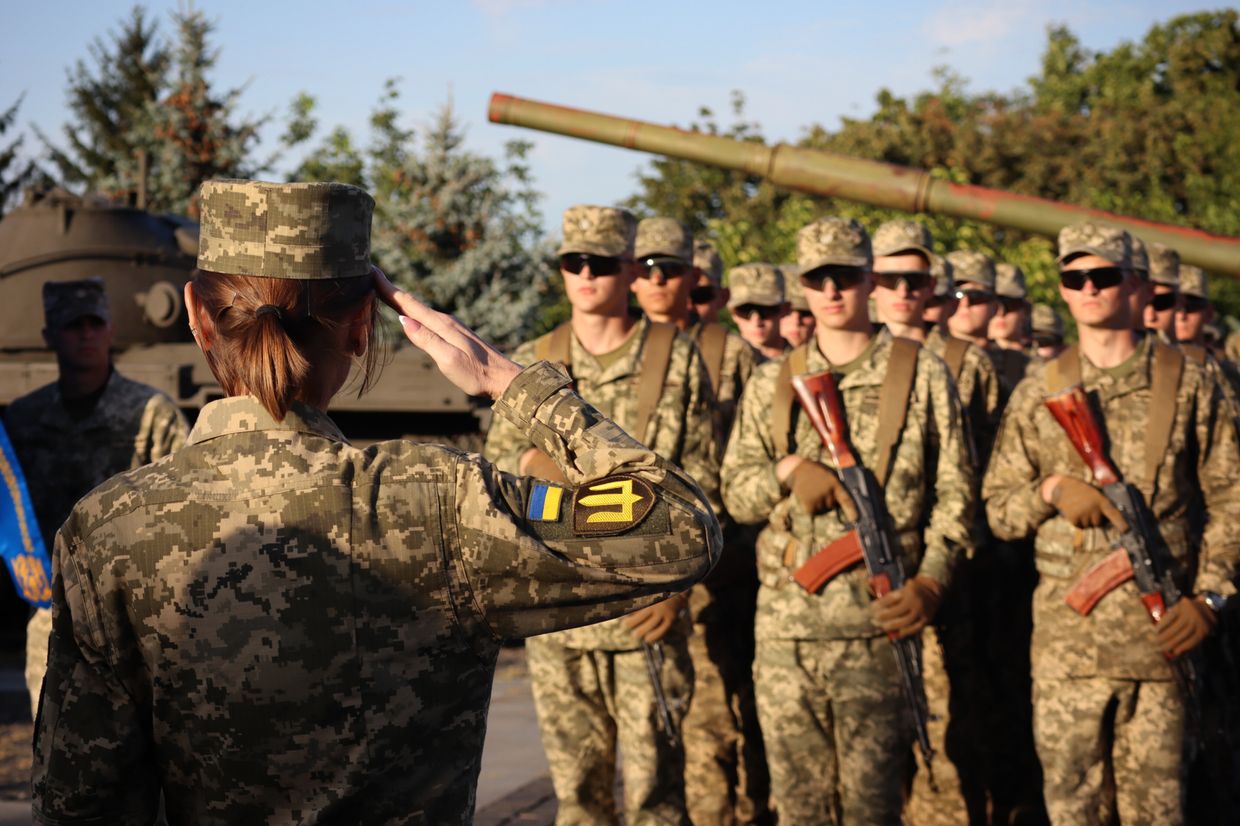Demobilization could repeat Ukraine's 'mistake' in 1918, parliament speaker says

Adopting demobilization law now could repeat the "mistake" of the Ukrainian People's Republic during its war against the Bolsheviks in 1918, said Ruslan Stefanchuk, speaker of Ukraine's parliament, on national television on July 25.
Most Ukrainian soldiers cannot legally demobilize and have been serving without any long-term breaks for the third year in a row since the start of Russia's full-scale invasion in February 2022.
"I do not know of a country that demobilized people during the war. Excuse me, I do know such a country – the Ukrainian People's Republic in 1918. At that time, Defense Minister Mykola Porsh submitted a draft law on demobilization to the Central Rada," Stefanchuk said.
"It is very important to me that the current Verkhovna Rada (Ukraine's parliament) does not repeat the 'mistake' of the Central Rada."
The Central Rada was an analog of the parliament in the times of the short-lived Ukrainian People's Republic.
According to Vitalii Skalskyi, director of the Ukrainian Research Institute of Archival Affairs and Records Management, it is a common misconception that the Ukrainian People's Republic carried out demobilization of its regular army in January 1918, eventually leading to its defeat in the war with the Bolsheviks.
However, Skalskyi argues that it wasn't the demobilization of the Ukrainian army, but the remnants of the old Russian imperial army in Ukraine.
"They were absolutely incapable and had no burning desire to fight for Ukraine," Skalskyi told the Kyiv Independent.
Nonetheless, Stefanchuk said that the Ukrainian military on the front line "has an exclusive right to justice," which is why it is necessary to provide them with vacations, rotations, or other "privileges."
Stefanchuk believes these issues were partially resolved after the new law on mobilization was adopted in April.
Most Ukrainian soldiers cannot legally demobilize. The grounds for demobilization may include health problems or the need to care for sick family members.
In April, before the law on mobilization was voted on in the second reading, the provisions on demobilization and rotation were removed from it.
The Defense Ministry said that the parliamentary committee had instructed it to develop a new law within eight months that would deal specifically with rotation and demobilization.
The ministry later announced in April that it plans to submit the draft law to the parliament in "the next few months." It has not been introduced yet.











